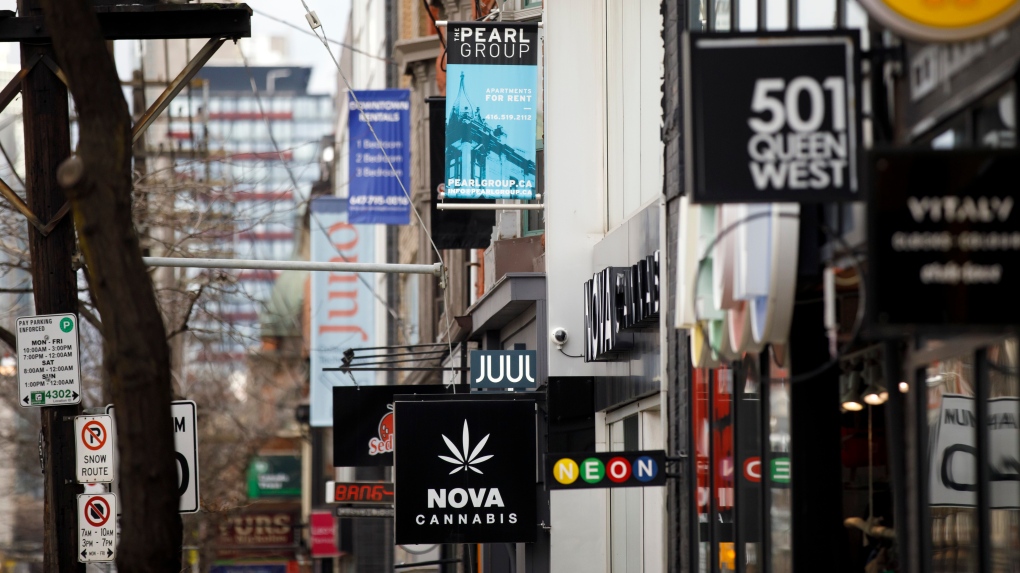These are the big changes coming to Ontario in 2024
Ontario is making a number of changes in the new year that could impact your wallet and business.
Here are some that you should be aware of:
New insurance rules for drivers
In January, motorists will have the option not to buy into direct compensation property damage (DCPD) coverage, which protects car owners from costs related to vehicle damage from a collision if they are not at fault.
- Download our app to get local alerts on your device
- Get the latest local updates right to your inbox
The provincial government says the change is meant to increase consumer choice and could be useful for drivers of older cars that are worth less than the insurance cost.
Experts warn that by opting out of DCPD coverage, drivers will be on the hook for vehicle repairs or the loss of a vehicle.
Morgan Roberts, director of RH Insurance, told CTV News Toronto the savings aren’t worth the tradeoff.
New rules for temp agencies
New legislation will make it illegal for companies to use unlicensed businesses for staffing as of July 1. This means that temporary help agencies and recruiters must be licensed. This will include a background check.
The government has said these agencies will be subject to “massive fines” if they break the rules.
The Minister of Labour at the time said the penalties could be as high as $50,000 or a “lifetime ban of operating in Ontario.”
Gas tax cut extension
Ontario’s gas and fuel tax rate cuts were extended until June 30, 2024.
The tax cut, which reduces prices at the pump by about 5.7 cents per litre, was first announced in July 2022 and has been repeatedly extended by the Doug Ford government.
 Gas prices are displayed in Carleton Place, Ont. on Tuesday, May 17, 2022. THE CANADIAN PRESS/Sean Kilpatrick
Gas prices are displayed in Carleton Place, Ont. on Tuesday, May 17, 2022. THE CANADIAN PRESS/Sean Kilpatrick
The Progressive Conservatives estimate the legislation has saved the average household $260 annually.
Child-care safety rules
Child-care operators in Ontario must have a policy in place for what to do if a child does not arrive or is not picked up as expected.
The safe arrival program is meant to prevent rare cases in which a young child is accidentally left in a hot car.
In 2022, an Ontario mother started a petition asking the government to direct child-care operators to come up with a similar program after a 23-month-old boy was accidentally left in a hot car and died in Bancroft, Ont.
School boards across the province have implemented safe-arrival programs since 1999.
Pay increases for early childhood educators
Ontario is boosting the minimum wage of early childhood educators in most licensed child-care centres to $23.86 an hour.
The change is part of a provincial strategy meant to retain staff in the sector as Ontario works towards establishing $10-a-day child care.
After 2024, the wage floor will increase by $1, up to $25.86 in 2026.
Minimum wage increase
The minimum wage will go up in October 2024, although it’s unclear by how much.
Last year the Doug Ford government bumped up the minimum wage by a full dollar, from $15.50 to $16.55.
One province and one territory have higher minimum wage rates than Ontario. Despite this, the Ontario Living Wage Network says it’s not enough for individuals to cover their cost of living.
More cannabis retail stores
Ontario will increase the number of storefronts a cannabis operator can manage in 2024. Previous legislation capped the number of stores per operator at 75, while legislating the stand-alone stores must be at least 150 metres away from schools.
The new laws allow licensed cannabis retailers to operate up to 150 storefronts.
 Signage for a Cannabis dispensary is seen amongst other shops on Queen St. in Toronto, Monday, Jan. 6, 2020. (THE CANADIAN PRESS / Cole Burston)
Signage for a Cannabis dispensary is seen amongst other shops on Queen St. in Toronto, Monday, Jan. 6, 2020. (THE CANADIAN PRESS / Cole Burston)
The province has also banned the growing of cannabis in homes offering child care.
Fines for sharing patient information
New laws will impose fines on individuals and organizations that inappropriately access or share personal health information.
These penalties will be handed out by the Information and Privacy Commissioner.
Vaping tax
The price of vaping products in Ontario will likely go up due to a provincial duty that would see manufacturers and importers pay $2 per two millilitre of vaping liquids for the first 10 millilitres, then $2 per 10 millilitres for volumes beyond that.
This will double the current federal duty rates on vaping products.
Faster licencing for international teachers
The Ontario government is requiring the Ontario College of Teachers to decide within 60 days of an application whether to accept an internationally trained teacher. The goal is to encourage faster hiring during a time at which staff retention is challenging.
The province’s Better Schools and Student Outcomes Act, which streamlines processes for building schools on shared-use sites and disposing of surplus school board property, goes into effect in the new year.
Changes for tow truck industry
As of Jan. 1, the province will become responsible for certifying tow operators, drivers and vehicle storage operators.
As part of the certification, individuals will have to meet certain training, insurance and vehicle safety standards—as well as get a criminal record check. It also means that these individuals will be exempt from municipal business licensing by-laws.
New customer rights will also be introduced that include providing consent to tow, choosing where a vehicle is towed, and rules surrounding accessing and paying for a vehicle.
CTVNews.ca Top Stories

Biden gives life in prison to 37 of 40 federal death row inmates so Trump can't have them executed
U.S. President Joe Biden announced on Monday that he is commuting the sentences of 37 of the 40 people on federal death row, converting their punishments to life imprisonment just weeks before president-elect Donald Trump, an outspoken proponent of expanding capital punishment, takes office.
Toronto weather: Advisories in effect ahead of 'significant' Monday snowfall
Holiday travellers and commuters could be in for a messy drive on Monday morning as a significant round of snowfall moves into the region.
Nissan and Honda to attempt a merger that would create the world's No. 3 automaker
Japanese automakers Honda and Nissan have announced plans to work toward a merger that would form the world's third-largest automaker by sales, as the industry undergoes dramatic changes in its transition away from fossil fuels.
Green Party's Elizabeth May reflects on unprecedented week in Canadian politics
Elizabeth May says in all her years on Parliament Hill she has never seen anything like the last week in Canadian politics.
The rent-a-friend industry is booming among Canada's Chinese diaspora
Dozens of people are offering rent-a-friend services on Xiaohongshu, a social media platform also known as Little Red Book or China's Instagram, in cities including Vancouver, Calgary and Toronto.
Trump suggests the U.S. should take back the Panama Canal. Could they do that?
Donald Trump suggested Sunday that his new administration could try to regain control of the Panama Canal that the United States 'foolishly' ceded to its Central American ally, contending that shippers are charged 'ridiculous' fees to pass through the vital transportation channel linking the Atlantic and Pacific Oceans.
opinion Christmas movies for people who don't like Christmas movies
The holidays can bring up a whole gamut of emotions, not just love and goodwill. So CTV film critic Richard Crouse offers up a list of Christmas movies for people who might not enjoy traditional Christmas movies.
Man handed 5th distracted driving charge for using cellphone on Hwy. 417 in Ottawa
An Ottawa driver was charged for using a cellphone behind the wheel on Sunday, the fifth time he has faced distracted driving charges.
Wrongfully convicted N.B. man has mixed feelings since exoneration
Robert Mailman, 76, was exonerated on Jan. 4 of a 1983 murder for which he and his friend Walter Gillespie served lengthy prison terms.

































